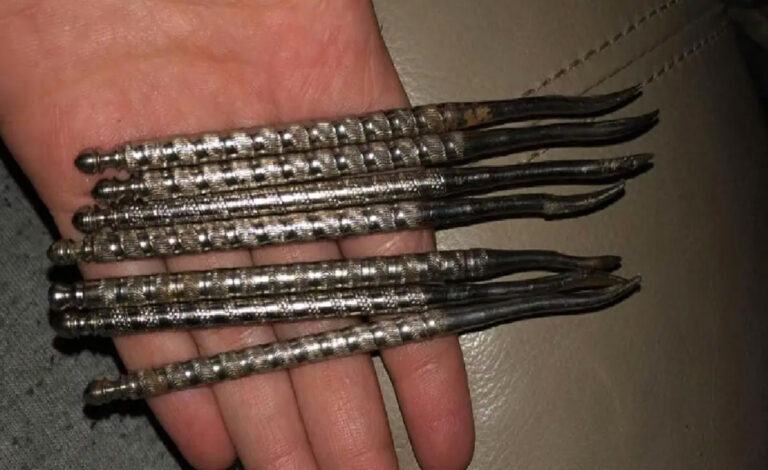
Do you remember these? Many finds mysterious tools in his grandparents’ home
intriguing artifacts and tools from bygone eras. These objects, once integral to daily life, now serve as windows into the past, allowing us to glimpse the way people lived and worked. In this article, we embark on a captivating journey through the memories and history attached to the mysterious tools discovered in the attics and basements of our grandparents’ abodes.
ADVERTISEMENT
The Enigmatic Toolbox: Unveiling the Past

ADVERTISEMENT
Unearthed Treasures: A Walk Down Memory Lane
Delving into the dusty corners of a grandparent’s home can lead to remarkable discoveries. From antique hand-cranked egg beaters to intricately designed manual typewriters, each item tells a unique story of a time when technology was simpler, yet ingeniously effective.
ADVERTISEMENT
The Rusty Relics: Tools of Trade and Tradition
In the workshop of yesteryears, tools served as the extension of one’s skills and craftsmanship. Primitive yet precise, these tools encompassed a wide range of purposes, from woodworking and metal shaping to leather crafting and seamstress work. As we uncover a collection of forgotten tools, we gain insight into the meticulous dedication our ancestors poured into their trades.
A Glimpse into Domestic Life: Kitchen Contraptions

The heart of any home is the kitchen, and our grandparents’ kitchens were no exception. From hand-cranked butter churners to enameled cast iron cookware, these tools symbolize an era when meals were prepared with a blend of skill and love. Exploring these relics invites us to reflect on the changing landscape of culinary arts.
Timekeepers and Curiosities: Horology and Beyond
Among the most enchanting discoveries in grandparents’ homes are the timekeeping devices that once graced mantelpieces and walls. From ornate pocket watches to intricate grandfather clocks, these horological wonders remind us of the timeless march of minutes and hours, while sparking our curiosity about the craftsmanship behind them.
Unveiling Memories: Preserving the Past

Bridging Generations: Sharing Stories of the Past
Each tool we uncover carries with it a story, and these stories deserve to be passed down to younger generations. Engaging with our elders to learn about the tools they once used fosters a sense of connection, preserving not only the memories but also the skills and traditions that shaped their lives.
The Art of Restoration: Breathing New Life into Antiquity
Restoring these tools to their former glory requires both skill and dedication. The process of cleaning, repairing, and preserving these artifacts is an art in itself, allowing us to appreciate the handiwork of our ancestors while contributing to the longevity of their legacy.
In the dimly lit corners of our grandparents’ homes, a treasure trove of history awaits discovery. Each tool, with its worn surfaces and weathered edges, speaks of a time when ingenuity thrived without the constraints of modern technology. As we continue to explore these hidden treasures, we not only honor the past but also gain a deeper understanding of the paths that led us to the present day.
Frequently Asked Questions
What kinds of tools are typically found in grandparents’ homes?
Grandparents’ homes often contain a wide range of tools, including woodworking implements, kitchen gadgets, timekeeping devices, and sewing equipment.
How can I preserve the tools I find in my grandparents’ home?
To preserve these tools, store them in a cool, dry place, clean them gently with appropriate materials, and consider consulting experts for restoration guidance.
Why are these tools considered valuable?
These tools hold historical and sentimental value, providing insights into the daily lives, skills, and trades of our ancestors.
Can these tools still be used today?
While some tools may be functional with proper care, many are better suited for display and preservation due to their age and historical significance.
How can I learn more about the history of specific tools I find?
Research online, consult historical records, and engage in conversations with experts and local historians to learn more about the history and usage of specific tools.





